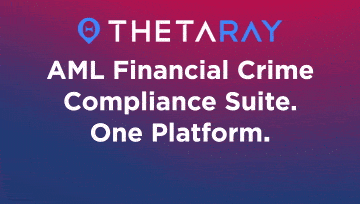News
Legal Brief: Panama Papers Turned Global Attention Toward Whistleblowers
Editor’s note: In the fourth installment of our series, the moneylaundering.com legal team covers reforms made to whistleblower protections in the wake of the Panama Papers.
In April 2016, the International Consortium of Investigative Journalists and Suddeutsche Zeitung began reporting on 11.5 million records leaked from Panama-based law firm Mossack Fonseca.
The records, obtained by a whistleblower known only as “John Doe,” show how wealthy individuals, public officials and criminals use offshore firms and accounts to secretly move billions of dollars in undeclared income each year. In the three years since, Panama has established a special prosecutor’s office to investigate the disclosures and similar leaks.
As of February 2018, according to the Financial Action Task Force, the special prosecutor had charged 35 individuals with money laundering, investigated roughly 275 legal entities and 144 accounts at 63 banks, and identified alleged bribery schemes involving Brazilian conglomerate Odebrecht and state-run energy firm Petroecuador.
Responses to the leaks, and to whistleblowing in general, have varied from government to government. On March 28, the U.S. House Financial Services Committee approved plans to establish a rewards program for individuals who flag corrupt assets held in U.S. financial institutions to the government. The plan also includes measures to assist in the recovery and return of those assets and prevent further enabling of foreign corruption and terrorist financing.
The full House of Representatives passed legislation July 9 that would expand the concept of whistleblowing to cover individuals who report alleged misconduct to their employers rather than only to the Securities and Exchange Commission.
Further north, a Canadian parliamentary panel recommended in June 2017 that lawmakers consider granting whistleblower protection to all public- and private-sector employees by 2022. The panel also recommended incentivizing whistleblowers financially and permitting them to make their allegations directly to law enforcement and the courts without fear of reprisal.
At an anti-corruption summit in London in the weeks after the Panama Papers leaks, Mexico, Argentina, Colombia and Trinidad and Tobago and other Latin American or Caribbean nations pledged to upgrade their protections for whistleblowers but reforms have been spotty.
In Mexico, then-President Enrique Pena Nieto signed legislation in July 2016 that ushered in the National Anti-Corruption System, or NACS, a centralized electronic platform through which any citizen can disclose misconduct anonymously.
Mexican whistleblowers are also now protected by the General Law on Administrative Responsibilities, which requires certain public organizations to establish anonymous and confidential reporting channels. The law came into force in July 2017.
Other countries have made little progress.
In March 2017, the Organisation for Economic Cooperation and Development found that Argentina has mostly failed to protect individuals who report public or private misconduct. This year, the OECD flagged persistent gaps in the country’s whistleblower laws and overreliance on witness protection policies to safeguard individuals from retaliation.
Only seven of 54 African nation had adopted whistleblower legislation as of March 2017, according to independent research.
Nigerian lawmakers have since met with advocacy groups, journalists and others to discuss expanding protections to whistleblowers in both the public and private sectors. Gambia, Benin and the Ivory Coast have yet to create viable channels or safeguards for whistleblowers, while the few protections that are in place are rarely enforced.
In the Asia-Pacific region, South Korea adopted legislation in September 2017 that extended deadlines for whistleblowers to apply for protection, expanded those protections to cover a greater range of activity, set more-stringent penalties for violations of the act and introduced other protections for those who report misconduct internally.
South Korean law already protected individuals who, acting in the public interest, disclose private-sector violations.
Australia enacted legislation in March that protects a wider range of whistleblowers, allows anonymous disclosures and requires public and “large proprietary companies” to develop whistleblower policies. The legislation also establishes harsher penalties against those who victimize whistleblowers and creates a system for disclosing tax-related misconduct.
In the European Union, lawmakers passed a resolution in March to upgrade the bloc’s efforts against financial crime, including by creating an EU-wide anti-money laundering regulator. The resolution also references the necessity of creating more robust protections for whistleblowers following the Panama Papers, the Paradise Papers, the LuxLeaks and other revelations.
One month later, citing the role of whistleblowers in bringing scandals such as those outlined in the Panama Papers and similar leaks to light, the European Parliament adopted minimum standards of protection for individuals who flag money laundering and other financial crimes, as well as tax evasion and egregious tax avoidance.
Collective efforts to protect whistleblowers and combat tax crimes since the Panama Papers have borne fruit.
Transparency International noted in April that at least 82 countries have launched leak-related investigations in the past three years, $1.2 billion in taxes has been recovered by 23 nations, officials accused of corruption or tax evasion have resigned or faced prosecution, and Mossack Fonseca, the law firm at the center of the Panama Papers scandal, has closed shop.
Contact Laura Cruz at lcruz@acams.org
| Topics : | Corruption/Bribery , Anti-money laundering , Tax Regulation/Enforcement |
|---|---|
| Source: | Panama , Nonprofits/Private Organizations , European Union , U.S.: Congress , Mexico , Argentina , Transparency International , Canada , Colombia , Trinidad and Tobago , Nigeria , Gambia , Benin , Ivory Coast , South Korea , Australia |
| Document Date: | July 15, 2019 |

